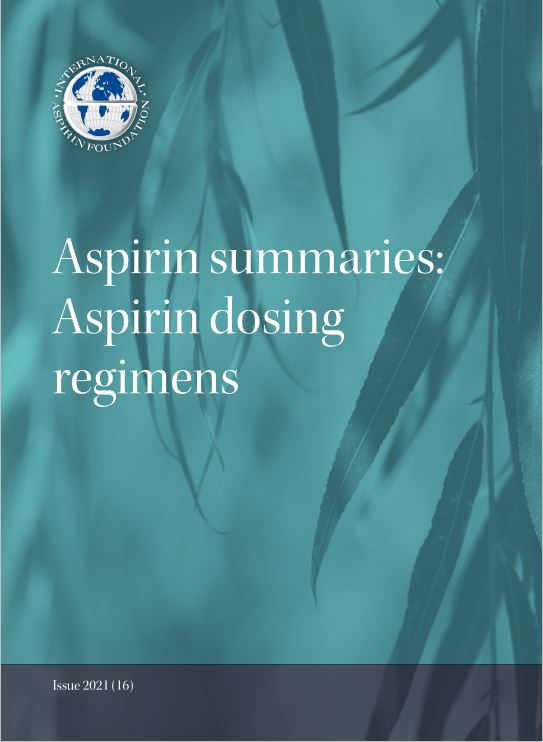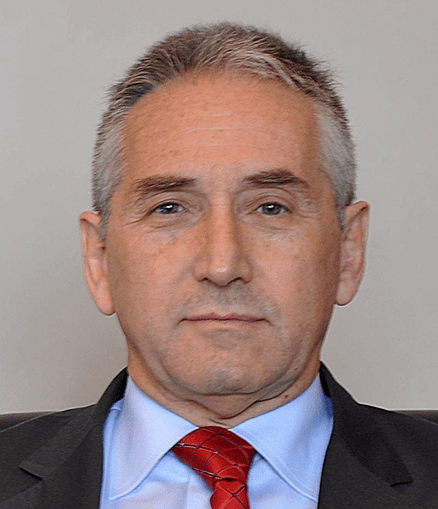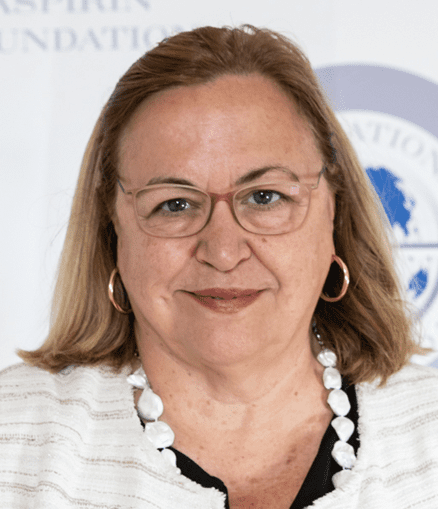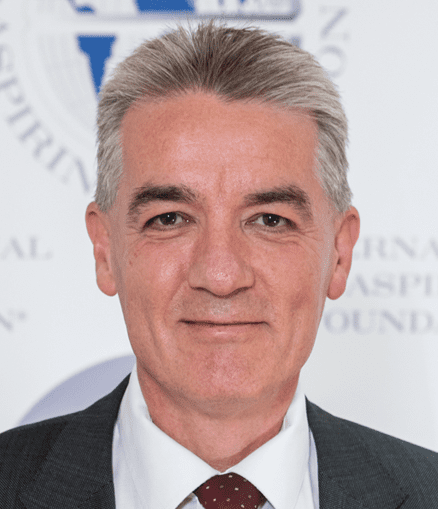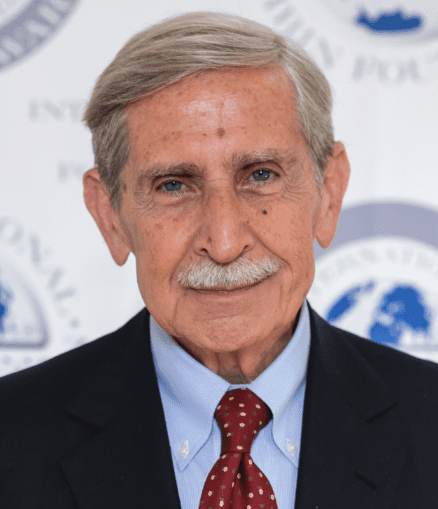Aspirin Summaries Issue 16 : Aspirin dosing regimens
The best dose of aspirin to use in order to prevent disease whilst minimising bleeding events has long been a subject of controversy and there is a lack of clarity in current guidelines1.
In addition, certain condition such as essential thrombocythemia require different dosing regimens for aspirin to exert its effect.
The following aspirin summary provides some recent scientific data to demonstrate some of the complexities of aspirin dosing regimens and the work that is being done to help inform the best regimen to use.
References
1. Jones WS, Mulder H, Wruck LM et al. Comparative effectiveness of aspirin dosing in cardiovascular disease. N Engl J Med. 2021; 384: 1981-1990. DOI: 10.1056/NEJMoa2102137 https://www.nejm.org/doi/full/10.1056/ NEJMoa2102137
The ADAPTABLE trial – aspirin dosing in established cardiovascular disease.
This study used an open-label pragmatic design to compare the effectiveness and safety of 81 mg versus 325 mg of aspirin daily for the reduction of cardiovascular events whilst minimising major bleeding events in people with established cardiovascular disease (CVD).
Primary effectiveness outcomes for the study were death (from any cause) and being hospitalised for MI or stroke. Primary safety outcomes were hospitalisation for major bleeding. Both outcomes were assessed on a time-to-event analysis.
The study included 15,076 patients with established CVD who were randomly assigned to receive 81 or 325 mg of aspirin per day and followed for a median of 26.2 months. Many of the patients were already taking aspirin before the study began (13,537) and of these the majority (85%) were taking the lower 81 mg dose.
The primary CVD event and fatality outcomes occurred in 590 (approx. 7.28%) patients in the 81 mg group and 569 (approx. 7.51%) in the 325 mg dose group (hazard ratio, 1.02; 95% confidence interval [CI], 0.91 to 1.14). The primary safety outcomes of hospitalisation for major bleeding occurred in 53 people (0.63%) in the 81 mg group and 44 (0.60%) people in the higher dose group. (hazard ratio, 1.18; 95% CI, 0.79-1.77).
There was no significant difference in the primary safety or effectiveness outcomes for the two different aspirin doses.
Patients taking the higher 325 mg daily dose were more likely to switch dose than those assigned the 81 mg dose (41.6% versus 7.1%). Those taking the 325 mg dose were also more likely to discontinue aspirin and it was perhaps these two factors that resulted in the null results.
The ADAPTABLE trial used the PCORnet, the National Patient-Centered Clinical Research Network to conduct the trial and was the first trial to use this pragmatic real-world approach.
The authors state:
‘A strategy of 81 mg of daily aspirin had similar effectiveness as a strategy of 325 mg in patients with established atherosclerotic cardiovascular disease, and long- term adherence was better with the 81-mg dosing strategy.’
For further information please see:
Jones WS, Mulder H, Wruck LM et al. Comparative effectiveness of aspirin dosing in cardiovascular disease. N Engl J Med. 2021; 384: 1981-1990. DOI: 10.1056/NEJMoa2102137 https://www.nejm.org/doi/full/10.1056/NEJMoa2102137
Comment on ADAPTABLE and its pragmatic design
In an editorial in the same issue of the New England Journal of Medicine, Professor Colin Baigent comments on how ADAPTABLE, based on differences in efficacy between higher and lower aspirin doses in previous randomised trials, set out to ascertain if there was a meaningful difference in the 81 mg and 325 mg aspirin doses taken daily for the secondary prevention of cardiovascular disease (CVD). The ADAPTABLE trialists had hypothesised that a 15% lower risk of CVD might be demonstrated in the 325 mg daily aspirin dose.
One of the key issues with this trial was the dose switching that occurred, especially from the 325 mg dose to 81 mg dose which may have masked a true difference in efficacy or safety outcomes. It is not possible from the results of ADAPATABLE to conclude the lack of a significance difference between the two arms of the study actually means the two doses are equivalent.
It can be difficult to predict where problems will occur when designing a new trial and for this reason a pilot study can be useful. Professor Baigent suggests that such a pilot study if carried out with ADAPTABLE might have predicted the bias seen for the 81 mg dose and a design in which patients were exposed to both doses in a run-in period could have been employed in order to select only those adhering to both regimens being selected for randomisation.
For further information please see:
Baigent C. Pragmatic Trials – Need for ADAPTABLE Design. N Engl J Med 2021; 384:2065-2066. DOI:10.1056/ NEjMe2106430 https://www.nejm.org/doi/full/10.1056/NEJMe2106430
The on-going WILLOW TREE trial (NCT03869268) will give further information on aspirin dosing both on its own as a once or twice daily regimen or in combination with ticagrelor.
Aspirin regimens for essential thrombocythemia – the ARES trial.
Essential thrombocythemia (ET) is a blood cancer in which the bone marrow over produces platelets. This accelerated platelet production may reduce the length of platelet cyclooxygenase-1 (COX-1) inhibition from traditional once-daily aspirin dosing regimens.
In the ARES trial 245 patients with essential thrombocythemia currently taking 100 mg of low- dose aspirin once daily with food were randomised to receive 100 mg of aspirin in either once daily, twice daily or a three times daily regimen. The majority of the patients taking once-daily low-dose aspirin were found to have incomplete platelet inhibition. Surrogate study endpoints were used with serum thromboxane B2 measured for efficacy and urinary prostacyclin metabolite for vascular safety.
Compliance, assessed using pill count and the patient’s diary, rated 90% of participants fully compliant. None of the patients were taking NSAIDs. No major bleeding or adverse cardiovascular events were reported during the 2-week randomised treatment or the 2-week period.
The long-term effects of this optimized aspirin regimen are being investigated in the ongoing phase of the AREs trial.
The authors conclude:
“Most patients with essential thrombocythemia treated with once- daily, low-dose aspirin (100 mg) displayed largely incomplete platelet inhibition, which was markedly improved by a twice-daily dosing interval, with no further improvement by a three-times daily dosing regimen.”
For further information please see:
Rocca B, Tosetto A, Betti S et al. A randomized double-blind trial of 3 aspirin regimens to optimize antiplatelet therapy in essential thrombocythemia. Blood 2020;136 (2):171-182.
https://doi.org/10.1182/blood.2019004596
Aspirin dosing regimens in pregnancy
Pre-eclampsia is an important cause of maternal and neonatal morbidity and mortality world-wide. Low- dose aspirin is recommended globally in guidelines to help prevent preeclampsia, but the ideal dosage is still a matter for debate.
This study used optical aggregometry to make a biochemical assessment of aspirin effectiveness in 248 pregnant women at high risk of pre-eclampsia. The women were recruited into the study over a three-year period from the outpatient department at the Medical University of Graz, Austria. A dose of aspirin 100 mg was given if on testing sufficient platelet inhibition was seenbut if this was insufficient a 150 mg dosage was given with retesting. New recommendations resulted in 19 women receiving the 150 mg dose of aspirin as a staring dose but out of the 229 women commenced on 100 mg daily only 91 (40%) were found to have a sufficient platelet inhibition.
With 138 women (60%) having an inadequate response demonstrated with light transmission aggregometry. It is also interesting that 64 (35%) of the women taking the 150 mg dosage did not have an adequate response.
No adverse side effects or bleeding complications were seen during the observational period in the study.
The authors conclude:
“The optimal dosage of aspirin for the prevention of pre-eclampsia has to be individualized and may eventually cross the 150 mg limit in some women at risk.”
For further information please see:
Stern C, Mayer-Pickel K, Weiss EC et al. Low dose aspirin in high-risk pregnancies: The volatile effect of acetylsalicylic acid on the inhibition of platelets uncovered by G.Born’s light transmission aggregometry. Journal of Reproductive Immunology. 2021, June ; 145 103320 https://doi.org/10.1016/j.jri.2021.103320
Obesity and aspirin dosing
In this study 316 patients taking dual antiplatelet therapy (100 mg of aspirin and 75 mg clopidogrel daily) following angioplasty and stenting were investigated in order to assess the effect of body weight on thromboxane generation and platelet reactivity arachidonic acid. Patients with a body weight less than 70 kg were compared with those with a weight 70 kg and over and as well as this, obese patients were compared with non-obese patients.
Flow cytometry was used to determine platelet surface expression of P-selectin and activated glycoprotein IIb/IIIa in response to arachidonic acid as markers of platelet activation. Urinary 11-dehydro-thromboxane B2 (TXB2) , serum TXB2 were also measured along with on treatment residual arachidonic-inducible platelet aggregation using aspirin assay and aggregometry.
The results showed that class 1 obesity does result in enhanced platelet activation in response to arachidonic acid in patients taking dual antiplatelet therapy.
However, this effect appears to be independent of cyclooxygenase-1-inhibition and, after adjusting for age and diabetes, the researchers found no significance difference between obese and non-obese patients in the frequency of high-on treatment residual TXB2 generation and high on-treatment residual inducible platelet reactivity.
The authors conclude:
“Our results do therefore not support the individualization of aspirin dosage based on body weight.”
For further information please see:
Lee S, Eichelberger B, Kopp CW et al. Residual platelet reactivity in low-dose aspirin-treated patients with class 1 obesity. Vascular Pharmacology. 2021; 136; 106819 https://doi.org/10.1016/j.vph.2020.106819
Is time of day relevant in aspirin dosing regimens?
Chronotherapy works to coordinate drug regimens with the bodies natural circadian rhythms and in this study, from The Netherlands, investigators considered the fact that cardiovascular events are more frequent in the early morning and the release of reticulated platelets (RP) by megakaryocytes peaks late in the night and early morning. RP are more reactive and have been linked to a higher cardiovascular event risk. With this information they designed an open-label, randomised, cross-over study to assess platelet function and RP levels at 8 am in 22 patients, with stable cardiovascular disease, taking three different aspirin regimens. The study participants took either a once daily 80 mg morning or evening dose of aspirin or a twice daily 40 mg dose schedule.
Platelet function was assessed at 0800- and 2000-hours using serum Thromboxane B2 (sTxB2) levels, the Platelet Function Analyzer -200® Closure Time, Aspirin Reaction Units and RP levels. They found that at 0800 hours sTxB2 levels were lowest after a once daily evening dose of aspirin when compared with a once daily morning dose (p= <0.01) but not compared with a twice daily dose. In addition, RP levels were statistically significantly reduced at 2000 hours after taking 80 mg once daily evening (p = 0.01) and 40 mg am and pm dose of aspirin (p = 0.02) when compared with the once daily 80 mg morning aspirin dose.
Further trials are planned which are powered on clinically relevant endpoints such as major cardiovascular events and it is hoped that these will confirm whether chronotherapy with aspirin administration can further reduce cardiovascular event rates.
The author concludes:
“ OD-evening aspirin intake results in higher levels of platelet inhibition during early morning hours and results in a reduction of RP levels in the evening. These findings may, if confirmed by larger studies, be relevant to larger of patients taking aspirin to reduce cardiovascular risk.”
For further information please see:
Van Diemen JJK, Madsen MC, Vrancken P et al. Evening aspirin intake results in higher levels of platelet inhibition and a reduction in reticulated platelets – a window of opportunity for patients with cardiovascular disease. Platelets 2021; 32(6):821-827. DOI: https://doi.org/10.1080/09537104.2020.1809643
Disclaimers:
• The information, views and opinions expressed are not endorsed or approved by members of The Scientific Advisory Board unless otherwise stated.
• The Information section is compiled using current published information at the time of writing and whilst every effort has been made to avoid errors, professional clinical judgement is required to interpret the information given. The information given is referenced clearly for further analysis as required.
• Every effort is made by the International Aspirin Foundation to see that no misleading or inaccurate data, statement or opinion appear. The International Aspirin Foundation cannot be held responsible for any errors or for any consequences arising from the use of the information.
• The International Aspirin Foundation, its associates and The Scientific Advisory Board accept no liability whatsoever for the consequences of any such inaccurate or misleading data, information, opinion or statement.
• Any information involving drug usage, should only be followed in conjunction with the drug manufacturer’s own published literature in their own country.
• Medical sciences evolve on a continual basis and therefore independent verification of the content should be made.
• The information, views, opinions and any other material provided should not be relied upon as a substitute to professional medical advice in relation to any medical condition. The International Aspirin Foundation, its associates and The Scientific Advisory Board accept no liability whatsoever for any consequences arising from any reliance placed on such information, views, opinions and other materials in lieu of professional medical advice.

